Caring for an elderly parent or grandparent? Checking in on a friend who needs an extra helping hand? Caregiving duties range on a scale from providing transportation to appointments all the way to administering skilled nursing care including giving medicines and changing dressings.
A significant portion of caregiving may also include cooking or providing meals and snacks throughout the day. Food is such an integral part of health and wellbeing, but so often, the other tasks of caregiving can overwhelm it and prevent loved ones from getting all the nutrition they should.
Depending on the condition and needs of your loved one, here are a handful of fun food tips and ideas for boosting nutrition and sharing tastier (easier) meals:
To help your loved one gain weight
 Putting on weight and maintaining a healthy, strong weight can be difficult, especially for people grappling with a chronic illness who lose muscle mass from lack of activity or whose appetite is suppressed by medicines they are on. Gaining weight safely means not overloading on sugars and fried foods, but instead, intaking healthy fats that can give your loved one energy and a little extra padding.
Putting on weight and maintaining a healthy, strong weight can be difficult, especially for people grappling with a chronic illness who lose muscle mass from lack of activity or whose appetite is suppressed by medicines they are on. Gaining weight safely means not overloading on sugars and fried foods, but instead, intaking healthy fats that can give your loved one energy and a little extra padding.
Free range eggs, avocado, full-fat milk and greek yogurt, heavy cream, dairy butter, peanut butter and cheese are all great choices for incorporating healthy fats into a diet and can easily be added (and blended) with meals. Many of them contain Omega-3s which are vital to brain and heart health, as well as monosaturated fats which have been shown to lower bad cholesterol levels.
Recipe to try: Bacon wrapped avocado eggs, Crustless quiche, Creamy carrot and lentil soup, Chicken pie.
Repair tissue
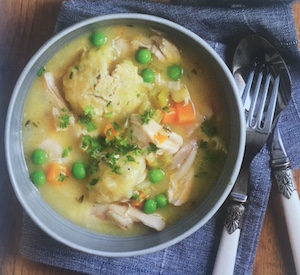 For bed or chair-limited loved ones, bedsores (pressure ulcers) may be a daily concern which requires vigilant monitoring and treatment. Did you know diet can play an important role in fuelling tissue growth and keeping skin strong to help prevent bedsores from progressing, and also help heals wounds (like from a surgical procedure)?
For bed or chair-limited loved ones, bedsores (pressure ulcers) may be a daily concern which requires vigilant monitoring and treatment. Did you know diet can play an important role in fuelling tissue growth and keeping skin strong to help prevent bedsores from progressing, and also help heals wounds (like from a surgical procedure)?
Vitamin C has a significant impact on tissue growth, from skin and nails to blood vessels, so make sure your loved one is consuming citrus fruits, broccoli, and bell peppers regularly. Protein for muscle and skin growth is also important so prioritize more lean meats (skinless chicken or beef) and plant-based proteins like legumes, beans, quinoa, and nuts in your loved one’s diet.
Recipes: Baked beans, Chicken soup with dumplings, Broccoli bacon and walnut salad.
Reduce blood pressure
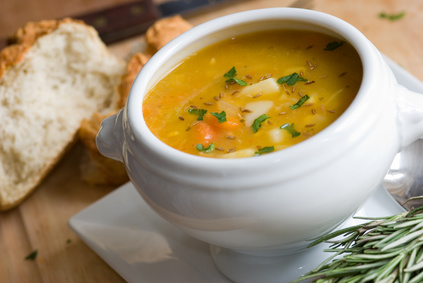 With 1 in 5 New Zealanders experiencing hypertension, or high blood pressure, chances are caregivers are in the business of helping keep their loved one’s blood pressure at normal levels. In addition to constant monitoring using a blood pressure by age chart, caregivers can make a significant impact with diet modifications.
With 1 in 5 New Zealanders experiencing hypertension, or high blood pressure, chances are caregivers are in the business of helping keep their loved one’s blood pressure at normal levels. In addition to constant monitoring using a blood pressure by age chart, caregivers can make a significant impact with diet modifications.
A DASH diet low in sodium and high in whole grains, fruits, vegetables, and other foods with electrolytes (potassium, magnesium, calcium) has been shown to lower high blood pressure. Top that with heart-healthy nuts, fats, and lean meats, plus loads of hydrating water, and you can enhance the efficacy of your loved one’s high blood pressure treatment. Some beverages like beetroot juice, hibiscus tea, and milk have also been shown to help lower high blood pressure.
Recipes to try: Berry porridge, Beetroot risotto, Vegetable stew.
Eat easier
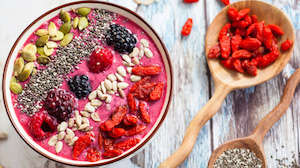 Both chronic disease, as well as some natural wear and tear of ageing, can result in swallowing difficult and discomfort – this is called dysphagia. Special dietary modifications may be recommended by a speech pathologist including drinking thickened liquids and only eating smooth, pureed foods. Caregivers may initially think the only options for their loved ones with dysphagia are nutritional shakes, plain yogurt or pudding, but tons of whole, fresh foods can be cooked and blended to pudding, honey, and nectar consistencies.
Both chronic disease, as well as some natural wear and tear of ageing, can result in swallowing difficult and discomfort – this is called dysphagia. Special dietary modifications may be recommended by a speech pathologist including drinking thickened liquids and only eating smooth, pureed foods. Caregivers may initially think the only options for their loved ones with dysphagia are nutritional shakes, plain yogurt or pudding, but tons of whole, fresh foods can be cooked and blended to pudding, honey, and nectar consistencies.
Blend a banana with roasted acorn squash, peanut butter, and ice cream for a hearty, nutritious shake. Whip together spinach, strawberries, and applesauce for a flavorful, vitamin-rich snack, or blend avocado, berries, spinach, banana, and greek yogurt for a superfood smoothie.
Recipes to try: Liver detox smoothie, Blueberry banana smoothie, See more smoothie recipes here.
Promote brain health
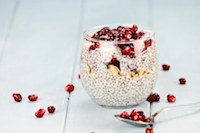 Omega-3 fatty acids have been linked to lowered risk of heart disease as well as a boost in brain function, memory, and critical thinking, which may help combat Alzheimer’s disease and dementia. Flaxseed oil, chia seeds, salmon, sardines, walnuts, hemp seeds, herring, and mackerel are just a handful of Omega-3 sources that may benefit your loved one’s cognitive thinking. Omega-3 fatty acids, alpha-linolenic acid (ALA), eicosapentaenoic acid (EPA), and docosahexaenoic acid (DHA) can also be found in some liquid and supplement forms at your local drugstore or online.
Omega-3 fatty acids have been linked to lowered risk of heart disease as well as a boost in brain function, memory, and critical thinking, which may help combat Alzheimer’s disease and dementia. Flaxseed oil, chia seeds, salmon, sardines, walnuts, hemp seeds, herring, and mackerel are just a handful of Omega-3 sources that may benefit your loved one’s cognitive thinking. Omega-3 fatty acids, alpha-linolenic acid (ALA), eicosapentaenoic acid (EPA), and docosahexaenoic acid (DHA) can also be found in some liquid and supplement forms at your local drugstore or online.
Recipes to try: Chia porridge, Chia jam, Salt and pepper salmon.
What your loved one consumes in the way of beverages and food can make a huge difference in their overall health and wellbeing, especially when you utilise food to fuel specific functions like helping repair tissue or lower blood pressure.
Caregiving is a powerful and fulfilling role but is rich with its own ups and downs. Transform preparing and serving food from a daily hassle to a handy caregiving tool, and as a caregiver, you will notice a positive difference for both you and your loved one.







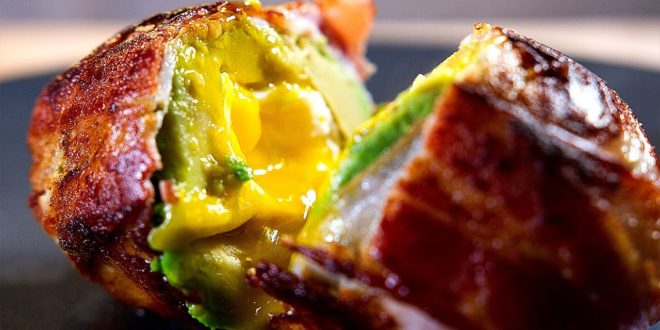
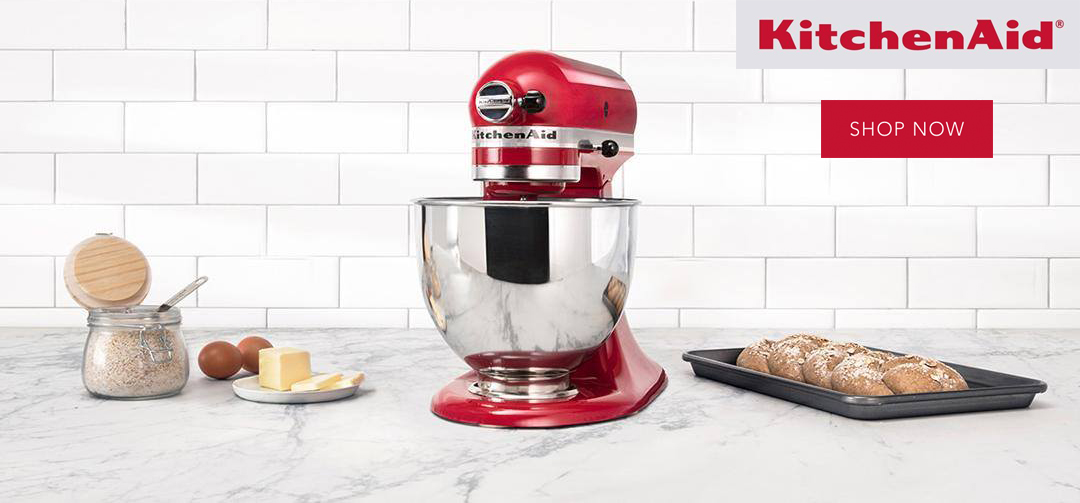
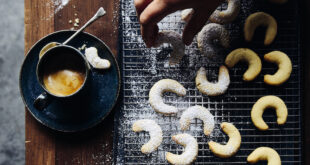
Join the Discussion
Type out your comment here:
You must be logged in to post a comment.